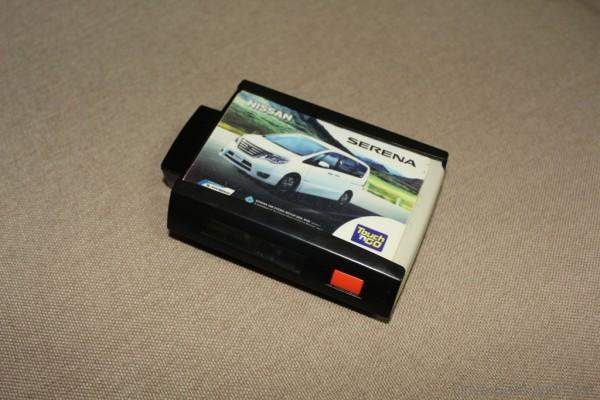The company says authorities and highway concessionaires should look at increasing SmartTAG lanes to reduce congestion at toll plazas
Hot on the heels of the announcement that RFID lanes will be implemented along the entire stretch of the North-South Expressway beginning next year, Infra-Red (IR) technology provider EFKON Asia Sdn Bhd has come forward to say that the current system is good enough to help accelerate implementation of multi-lane traffic free flow system and reduce congestion at toll plazas.

According to EFKON Asia director Helmuth Blasch, the current system which uses Touch ‘n Go (TnG) cards and toll reader units popularly known as SmartTAG has a combined customer base of five million users and growing.
“Coupled with continuous product upgrades that has significantly improved the system’s reliability and user experience, it is the ideal and much more advanced staging point to achieve the congestion-free highway objective outlined in the Intelligent Transport System (ITS) Blueprint compared to the fledgling Radio Frequency Identification (RFID) payment system,” he said.

Blasch added that this year alone, around 75% of the 270,000 new passenger cars and commercial vehicles registered in Peninsular Malaysia until September 2021 were delivered with either a SmartTAG compatible built-in toll reader or portable device.
“This is a clear indication that the IR system continues to enjoy the confidence of top vehicle manufacturers, retailers and owners and has proven its worth as an efficient, convenient and cost-effective cashless toll collection system,” he said.
The company also took notice of the public response to recent announcement by the Work Ministry, saying that most highway users obviously prefer the superior convenience, proven reliability and better user experience of the IR system, which has been in use in the country since 2005.

Blasch believed that the authorities and highway concessionaires should look at increasing rather than reducing SmartTAG lanes if the objective was to reduce congestion at toll plazas.
“In Germany, the Nationwide Truck Tolling System installed on all highways in a Multi-Lane Free Flow (MLFF) configuration has proven to be highly effective, catering to more than two million trucks travelling at up to 100 km/h. It uses a similar IR technology, like in Malaysia, to validate payment. We have also successfully replicated this test in Malaysia.
Our SmartTAG compatible units comply with DSRC (Dedicated Short-Range Communication) standards and are ECE R10 certified. They operate in the 400THz band and, therefore, able to transfer data 10,000 times faster than RFID. Being battery-powered, every unit is active with a wake-up time of just two milliseconds compared to the passive RFID’s 45 milliseconds,” he explained.

EFKON Asia has been working closely with the local manufacturers of SmartTAG compatible devices to continuously introduce upgrades and improve the user experience.
“For consumers, SmartTAG compatible built-in toll readers are directly powered by car batteries while portable units such as the MaxTAG now come with a powerful and long-lasting rechargeable 1000mAh battery and USB port for easy charging in the car to ensure availability at all times. For highway concessionaires, we are now offering new lane side antennas at subsidised cost to upgrade the performance of SmartTAG lanes to ensure smoother traffic flow.
In Q1/2022, we will be moving towards digitalisation by enabling Bluetooth connection between our devices and smartphones and car media systems. Connection to an e-wallet for easy top-ups will also be possible,” Blasch added.